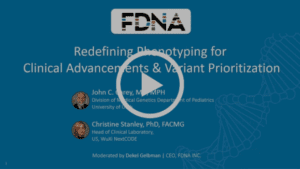published as part of Access A.I.’s publication: “AI and Business: a Practical Guide.“
Our world is filled with data. Data on your shopping habits. Data on your physical health. Data on your genetics. The challenge of gaining insights lies not in a lack of data, but in a lack of using that data in a meaningful way.
Artificial intelligence and deep learning technology can process huge quantities of data and scale in ways that provide immediate answers to pressing questions. Imagine walking into a doctor’s office where a system scans you, using your data to give the doctor insights beyond the human mind’s ability to discover.
One small step for man, a giant leap for mankind
At its conception, artificial intelligence (A.I.) included any machine function that imitated human “cognitive” functions. A few years ago, this included the ability of computers to recognize a face or text on a page.
With the rapid advance of technology, these definitions are quickly changing. Facial recognition is no longer considered “intelligent,” but rather routine. It is now a question of what technology can do with a recognized face. Today, intelligent technology is expected to predict a person’s health or behavior based on a facial photo, to learn from experience, and to predict, or even imitate, complex human behaviors. Even these things are advancing toward becoming routine, leaving behind archaic technologies and the companies that use them. Already on the horizon are technologies that will invent more advanced technologies than themselves, ponder and test scientific theories, and write and publish their own articles on what the future might hold.
The question is not “what is possible.” The question is rather: “what will we do with all that is possible?”
What do we want?
There is a high demand at present for technology to find the answers to questions—ours and our customers.
What treatment is best for me? In what neighborhood will I be the happiest? What route will take me to my destination the quickest while bringing me past the best coffee stop?
With the globalization of relationships, both commercial and personal, there is no shortage of opportunities; rather, only a shortage of time to pursue all the opportunities.
We must ensure that the technologies we use and sell can sift through all the opportunities and highlight the most meaningful information and answers. Grocery delivery services that predict the ingredients we have likely run out of. Websites that prioritize books, shoes and gadgets that are likely to peek our immediate personal interest. Personalized medicines that predict our health outcomes based on unique personal attributes.
Genomics: case in point
In genomics, doctors are desperate for solutions that help them diagnose and treat their patients. The question is always the same: “what is causing my symptoms?” Unfortunately, so is the answer: “one of the thousands of rare genetic disorders.”
Efficiencies are driving down genetic testing costs, but we have reached the ceiling in capabilities and a floor in costs. We can read the entire genome for $1,000, but it costs $10,000 to interpret the results with no more than a 25% diagnostic yield. Even if the test were $100, the interpretation of the test would bankrupt most patients for no real benefit. Why these bleak numbers? Because there is too much data to analyze and no smart and scalable way to interpret it. The answers that the doctors and patients are looking for are in the data, but how can they be sifted out?
Enter A.I.Technology
For decades, genetic test results, patient images and symptoms were recorded in an unstructured way, inaccessible to computer analysis. The result was that clinicians had to sort through patient files and manually interpret the results—a costly business.
Computer vision, artificial intelligence and deep learning technologies represent the only path forward for this type of problem, whether in genomics or other industries. Using this technology to photograph and scan patients and their records instantly produces a wealth of structured data that is available for computers to analyze, recognizing syndrome-related phenotypes and disease-causing genes.

Advancements in bioinformatics are beginning to use these insights to filter and prioritize the most clinically relevant disease-causing genetic variants, increasing the diagnostic yield of molecular testing while reducing time and costs.
How will the genomics industry arrive at a $100 genome and interpretation? How will a doctor find answers for their patients? Through A.I.
The Future of Genomics
The future belongs to those who use technology to sift through the data to find the best answer quickly. Save your customers’ time by finding the best answers for them, and they will have more time for you and your products.
As leaders in our fields, we should look at what data is accessible through our current channels and find a way to structure that data and incorporate it into our decision-making. Once data is structured, A.I. systems can use that data in a supervised or unsupervised way to achieve our goals.
Those companies that do so will excel into the next generation, while those who fail will be left by the wayside.
How can I get a piece of the A.I. pie?
Find out who is using A.I. in your industry and forge a relationship. A relationship with the right partner could allow your existing data to train a deep learning system to find the answers to your questions; whether that be identifying products your customers are likely to buy or diseases that a doctor should be considering.
—
About Dekel Gelbman and FDNA
Dekel Gelbman is the CEO of Boston-based FDNA. FDNA uses facial analysis, deep learning, and artificial intelligence to transform big data into actionable genomic insights to improve and accelerate diagnostics and therapeutics. With the world’s largest network of clinicians, labs, and researchers creating one of the fastest-growing and most comprehensive genomic databases, FDNA is changing the lives of rare disease patients. Learn more at www.fdna.com



